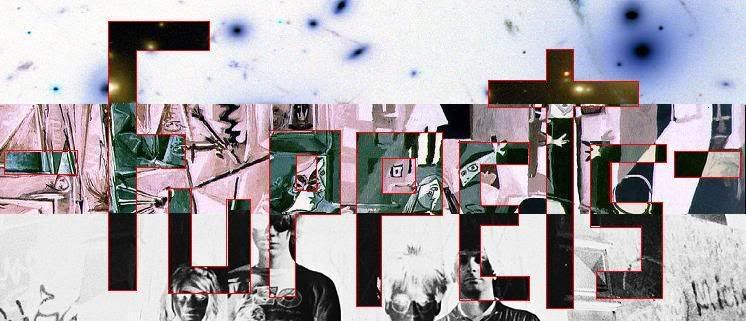Deep underground on the border between France and Switzerland, the
world's largest particle accelerator complex will explore the world on smaller
scales than any human invention has explored before. - Elizabeth Landau - CNN
The construction is finished and the final tests have been run. On Wednesday September 10th, at 1:30 AM Central Standard Time, the beam will be turned on for the first time to circulate around the 17 mile track of the LHC. This is very exciting stuff. Full research will not be available until everything is certified to be in top working condition. There are actually 5 different experiments that will be running in the LHC once it begins full functioning.
One of the main experiments is seeking the HIGGS BOSON, a theoretical particle that has yet to be "seen" by humans, and which may be the particle that allows other elementary particles to have mass. It sounds like not much, but it is a HUGE experiment to determine the validity and fix the problems with certain issues in quantum mechanics and relativity.
In addition to the Higgs boson, other theorized particles, models and states might be produced, and for some searches are planned, including supersymmetric particles, compositeness (technicolor), extra dimensions, strangelets, micro black holes and magnetic monopolesA lot of hot air has been expelled by people who do not understand high energy particle physics about the possibilities of the LHC creating some sort of mini black hole, which, according to the dumb-asses, could swallow up the earth. HA! MORONS! Even if a tiny mini black hole is created, these things "evaporate" so quickly as to almost not exist at all, which is why we have BILLIONS of dollars of sensor equipment and computer equipment to analyze these hyper-fast quantum events! Morons! Some people are so scared of technology and science that they will do and say anything in their power to keep humanity's knowledge stagnant.
This is an overview if some of the questions that scientists are seeking to answer with this super powerful particle accelerator.
When in operation, about seven thousand scientists from eighty countries will have access to the LHC. Physicists hope to use the supercollider to test various grand unified theories and enhance their ability to answer the following questions:
Is the popular Higgs mechanism for generating elementary particle masses in the Standard Model realised in nature? If so, how many Higgs bosons are there, and what are their masses? (if the Higgs Boson turns out not to exist then the basic theories about how quantum particles gain mass will have to be overhauled. If found, then it would allow confirmation as well as experimentation down the line. Either way it is kick ass.)
Will the more precise measurements of the masses of the quarks continue to be mutually consistent within the Standard Model?
(Every time we humans develop better instruments with which to analyze and measure the Universe we get closer and closer to the underlying structure of our Universe.)
Do particles have supersymmetric ("SUSY") partners?
(In particle physics, supersymmetry (often abbreviated SUSY) is a symmetry that relates elementary particles of one spin to another particle that differs by half a unit of spin and are known as superpartners. In other words, in a supersymmetric theory, for every type of boson (particles associated with "forces") there exists a corresponding type of fermion (particles associated with mass), and vice-versa. Supersymmetry appears to be a fundamental aspect of nature, but we have no real experimental evidence for it.)
Why are there apparent violations of the symmetry between matter and antimatter? See also CP-violation.
(CP is the designation given to the ratio that allows a particle to become it's own anti-particle. Particles and anti-particles are identical, except for their "quantum spin," which is opposite. CP violation happens in weak radioactive decay.)
Are there extra dimensions indicated by theoretical gravitons, as predicted by various models inspired by string theory, and can we "see" them?
(This is a very interesting question. If the LHC allows us to "see" these gravitons, theoretical particles that purportedly carry the gravitational charge, then our theories of relativity and quantum mechanics will have to be re-worked into one unified theory. Amazing stuff. If extra dimensions are shown, then it would give much more weight to the Superstring theorists with their predictions of multiple new dimensions, each one teeny tiny and curled in on itself.)
What is the nature of dark matter and dark energy?
(This one is a biggie! Over the past few decades we have come to understand that nearly all the matter we see in the Universe, all observable matter and energy, only makes up about 10% of the actual matter and energy that should be in our Universe for it to look and behave the way it does on a large macro-cosmic scale. If we can find evidence of dark matter or dark energy with the LHC it would be a whole new world of inquiry opened up to Earth scientists.)
Why is gravity so many orders of magnitude weaker than the other three fundamental forces?
(Gravity is the weakest natural force there is. It is so much weaker than anything else as to almost be negligible. For example, the electromagnetic force is very strong. you can use static cling to hold a paper clip up off of your desk, using a tiny amount of electromagnetic energy to negate the gravitational pull of the entire fucking Earth upon that paper clip. Insane huh? Some people propose in M Theory that gravity spreads throughout all Universes in the multi-verse, the multiple near infinite universes proposed by string theorists. If this is the case, and we can find out why gravity is so unexpectedly weak, then we could verify the "Multi-verse Theory!" Amazing!)
Here is an animation of one of the sensors in the Large Hadron Collider being installed.

-FUPPETS- loves the future, and the future is here.

No comments:
Post a Comment